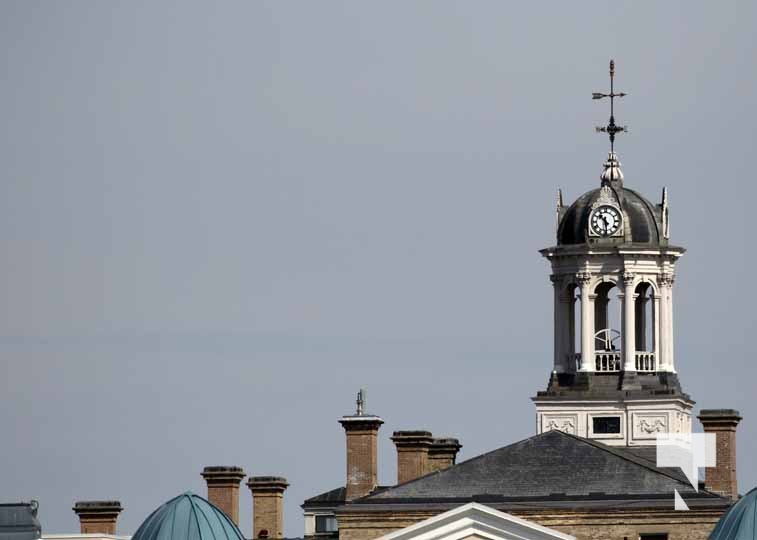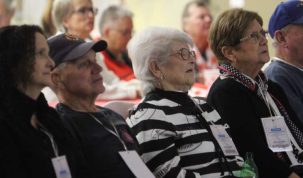By Cecilia Nasmith/Today’s Northumberland
Cobourg could possibly ring in 2024 with a bylaw governing the licensing and operation of short-term accommodations.
This time line was floated at Monday’s committee-of-the-whole meeting as council heard concerns from several speakers, including Grant Hayes of the Genedco and Guardian property-management companies.
Hayes acknowledged that condominium boards are passing their own regulations to govern owners of units who put their spaces to this use and, in effect, spoil the peaceful enjoyment of their neighbours in their own homes with the noise and disruption of what he termed a revolving-door unit.
But neighbours in non-condominium situations are not so lucky, he said. They are left on their own to deal with the loss of the quiet enjoyment of their homes, the decline in property values, the increased liability risk, the parking issues and other fall-out that lessens their security and raises their insurance costs.
No perfect solution exists, Hayes allowed. His companies work in 20 communities, each of which is taking the steps they deem most appropriate.
Hayes was followed by two speakers from the audience, allowed through the Open Forum portion of the meeting. One, who did not identify himself, pointed out that New York has banned the majority of STAs.
“I think Halifax has done the same thing, Vancouver has done the same thing,” he added.
The speaker mentioned his own research that indicates that as many as 31,000 residences and low-income housing units have been lost to the market through homes being used as STAs and not as homes to live in.
Municipal Clerk and Director of Legislative Services Brent Larmer said that a public meeting on the issue is scheduled for Oct. 30, following which he expects a report back to council in November and the potential passage of governing legislation by year’s end.
In Larmer’s own presentation, he said the town’s study of this situation began in 2021. Feedback from a survey that was conducted has informed the drafting of licensing and zoning bylaw amendments that will be presented at the Oct. 30 meeting.
In Ontario, he said, STAs represent one of the fastest-growing sectors of the sharing economy, but they present a number of benefits and challenges. Ideally, zoning regulations and licensing operators should help balance the benefits and mitigate potential negative effects.
There are three kinds of STAs, he said.
The traditional bed-and-breakfasts operate in someone’s principal residence with the owners present. This model presents the fewest challenges and problems.
There is the principal residence where the owner rents out the premises at certain given times, such as during a winter stay in Florida.
Then there is the house that is nobody’s principal residence but is rented out at virtually any time. This model presents the most challenges and problems. The ones that most frequently arise have to do with nuisance, noise and parking.
Larmer is proposing that investigation fees be part of any regulations to cover the costs of looking into reports of trouble that arise at these locations.
In all cases, compliance with all governing legislation (fire code, health and safety regulations, noise and nuisance-control bylaws, for example) must be ensured.
The hope is to strike a balance between prohibition and sufficient regulations to address local context, Director of Planning and Development Anne Taylor Scott said.
Taylor Scott noted that STAs support the local economy and tourism, but acknowledged the impact on rental and affordable housing. Each house left as a residence has the potential to become three residence with the addition of a basement apartment and coachhouse. Each house used as an STA, therefore, takes one to three homes off the market.
Among regulations proposed are permitting STAs anywhere residential dwellings are permitted, prohibiting the use of such accessory dwellings as basement apartments as STAs and, where rentals are offered on a room-by-room basis, requiring one parking space for each rented guest room.
Larmer discussed the licensing requirements. It will be required, for example, that an operator’s license number appear on any on-line listing.
There will also be insurance requirements, principal-residence requirements, and the requirement that a local contact be available to renters on a 24/7 basis, not to mention a Visitors’ Code.
Enforcement procedures and penalties will have to be established, Larmer noted, adding that some municipalities had been forced to hire staff specifically for this purpose. An administrative penalty – for example, $250 for each day on which the contravention occurs or continues – will be a must.
There is also the matter of a Municipal Accommodation Tax. This can be set by the municipality, but is typically 4%. It is collected by the accommodation provider at the time of booking and regularly paid to the municipality, which is required to use half of this revenue to support tourism-related activities.
“This is going to have a major effect on staff requirements in the whole bylaw area,” Councillor Randy Barber predicted.
“I think we have to take that into account well in advance.”
























